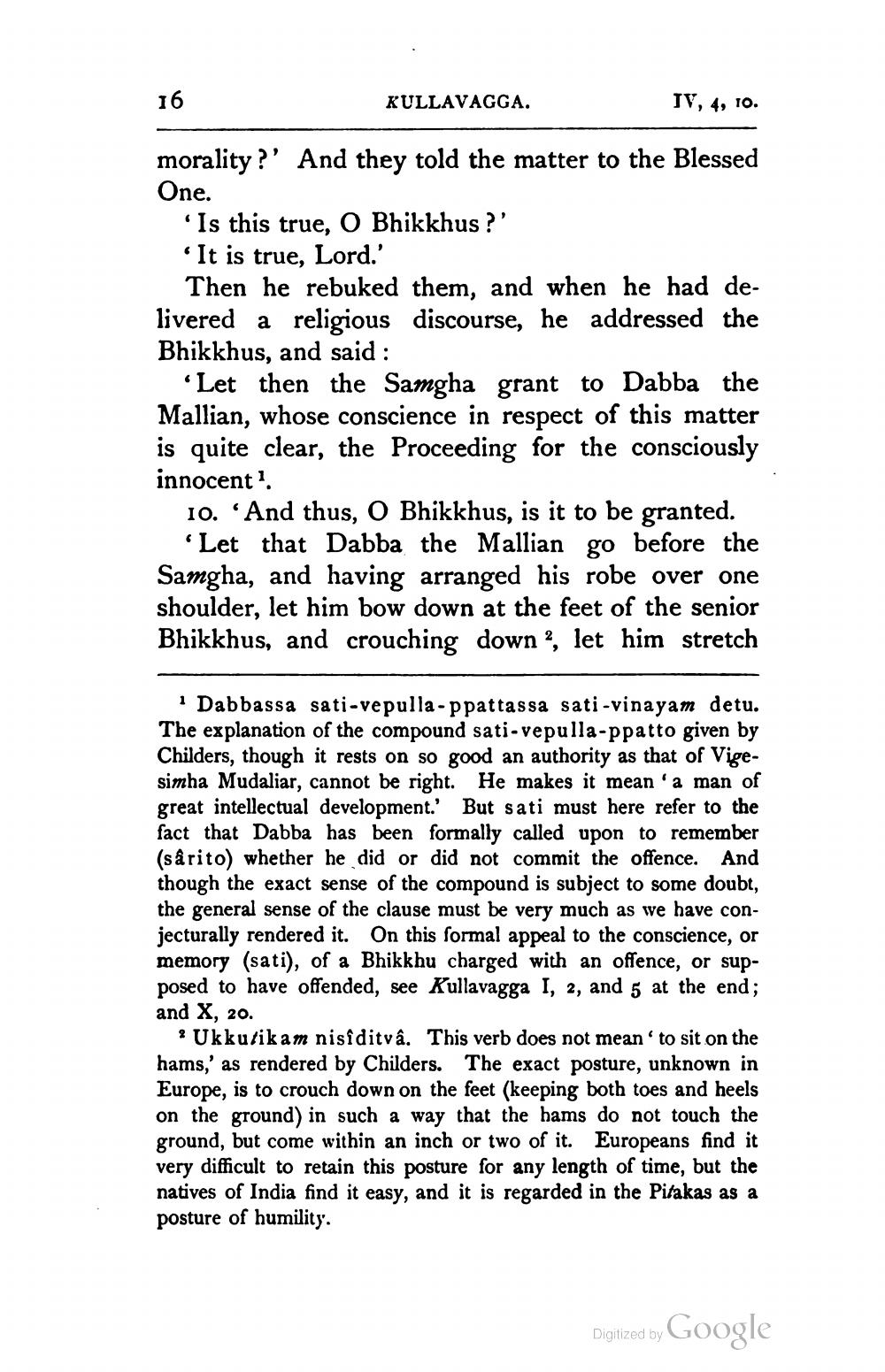________________
16
KULLAVAGGA.
IV, 4, 10.
morality?' And they told the matter to the Blessed One.
'Is this true, O Bhikkhus ?' • It is true, Lord.'
Then he rebuked them, and when he had delivered a religious discourse, he addressed the Bhikkhus, and said :
"Let then the Samgha grant to Dabba the Mallian, whose conscience in respect of this matter is quite clear, the Proceeding for the consciously innocent'.
10. 'And thus, O Bhikkhus, is it to be granted.
'Let that Dabba the Mallian go before the Samgha, and having arranged his robe over one shoulder, let him bow down at the feet of the senior Bhikkhus, and crouching down ?, let him stretch
Dabbassa sati-vepulla-ppattassa sati-vinayam detu. The explanation of the compound sati-vepulla-ppatto given by Childers, though it rests on so good an authority as that of Vigesimha Mudaliar, cannot be right. He makes it mean' a man of great intellectual development.' But sati must here refer to the fact that Dabba has been formally called upon to remember (sârito) whether he did or did not commit the offence. And though the exact sense of the compound is subject to some doubt, the general sense of the clause must be very much as we have conjecturally rendered it. On this formal appeal to the conscience, or memory (sati), of a Bhikkhu charged with an offence, or supposed to have offended, see Kullavagga I, 2, and 5 at the end; and X, 20.
? Ukkutik am nisiditva. This verb does not mean to sit on the hams,' as rendered by Childers. The exact posture, unknown in Europe, is to crouch down on the feet (keeping both toes and heels on the ground) in such a way that the hams do not touch the ground, but come within an inch or two of it. Europeans find it very difficult to retain this posture for any length of time, but the natives of India find it easy, and it is regarded in the Pitakas as a posture of humility.
Digitized by
Digized by Google




